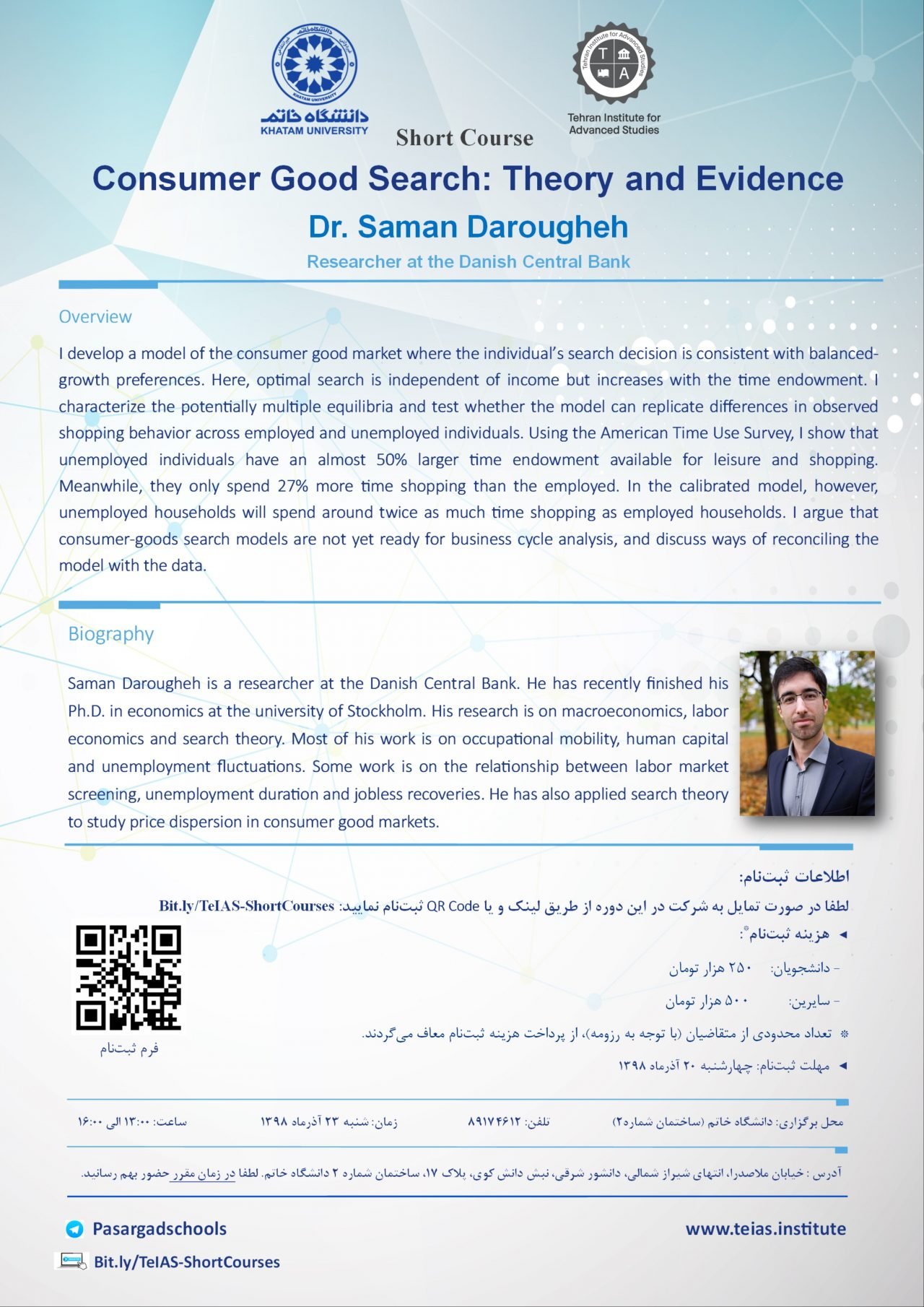
Khatam University, Building No2.
Address: Mollasadra Blvd., North Shirazi St., East Daneshvar St., No.17.
See location on Google map
Dr. Hamid Reza Jahangiri
Reservoir Engineer and Data Scientist
Overview
The era of “big data” in oil and gas has moved forward from a beginning, to an activity that all of the significant participants in the oil and gas industry are undertaking to some degree. The objective of this research is to create and implement capabilities that enable deep insights to be drawn from the available data steams and repositories that turn them from being data warehouses into genuine support for functional activities. A primary focus area in Data-to-Barrel transformation is leveraging the operation’s data to improve reservoir performance and increase recovery. A specific area of opportunity is waterflood management and optimization. To address the challenge and get the most value from the water we inject in our fields, my team is developing and testing an innovative and complementary approach to waterflood performance management This concept is able to identify and quantify the interactions between the injectors’ and producer wells’ flow measurements.
Understanding and quantifying relative connections among injectors and producers is a key to improving reservoir performance under waterflood. Inter-well tracers were used to assess the injector-producer connections in early days of development. A data-driven approach is a valuable process for estimating injector/producer connectivity as more wells were drilled. It offers a viable alternative to costly and challenging tracer operation in offshore environments such as the North Sea. We have developed an innovative approach for waterflood performance, Top-Down Waterflood (TDWF) Diagnostics and Optimization. This novel approach combines the Capacitance Resistivity Model (CRM) and proprietary event detection and association technology to quantify the connections between the injectors and the producers. As a direct result of this study TDWF will be used as a “virtual” inter-well tracer. The efficiency of the newest injector in the field was better understood without the need to conduct a tracer program.
Biography
Hamid Reza Jahangiri has been working for BP America as Reservoir Engineer and Data Scientist. Hamid’s previous role was in Upstream Technology and Field of the Future flagship. He joined BP in 2012. Hamid holds PhD degree in petroleum engineering from the University of Southern California and completed his Bachelor and Master’s Degree in Electrical and Petroleum Engineering at Sharif University of Technology in Iran.
